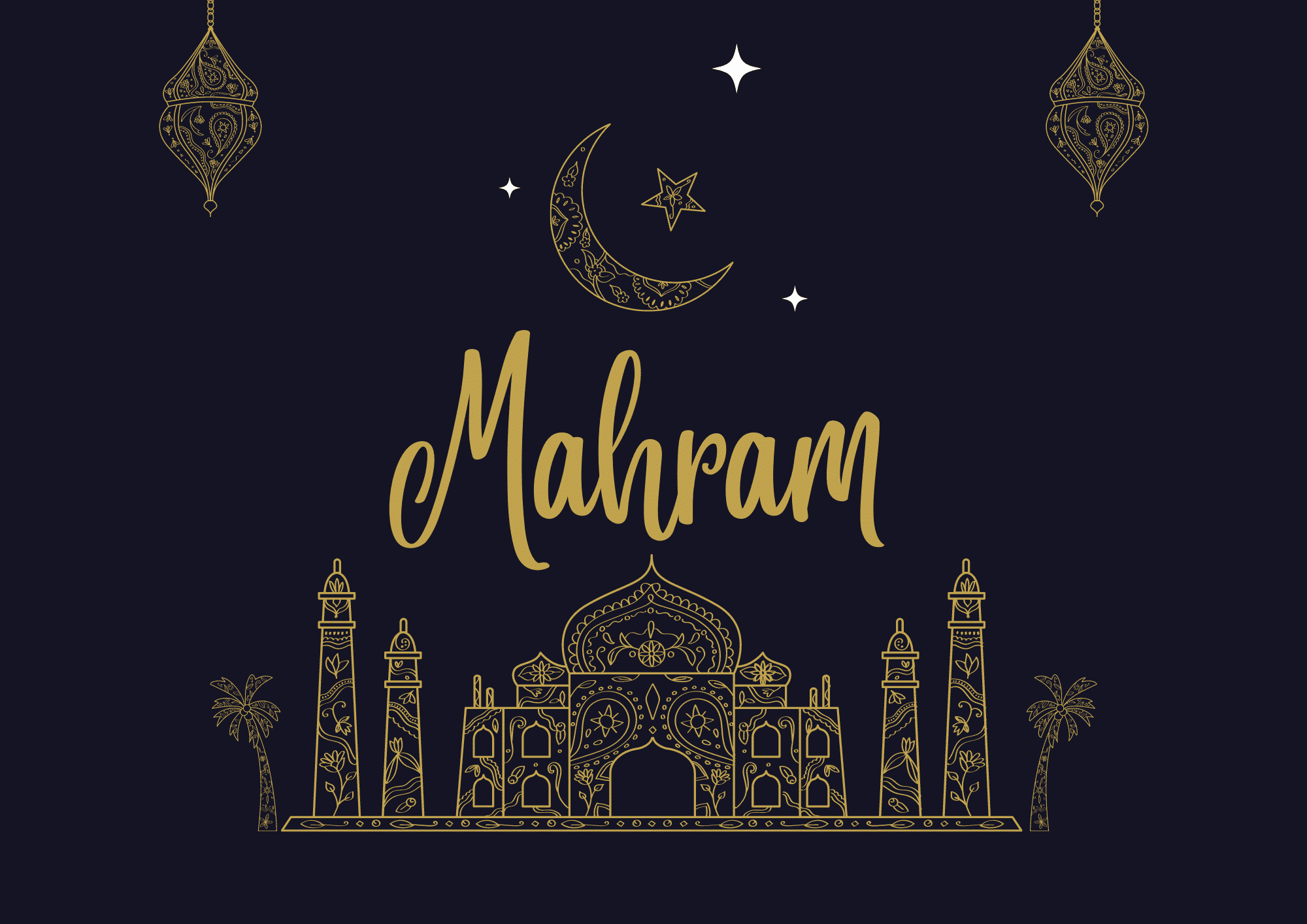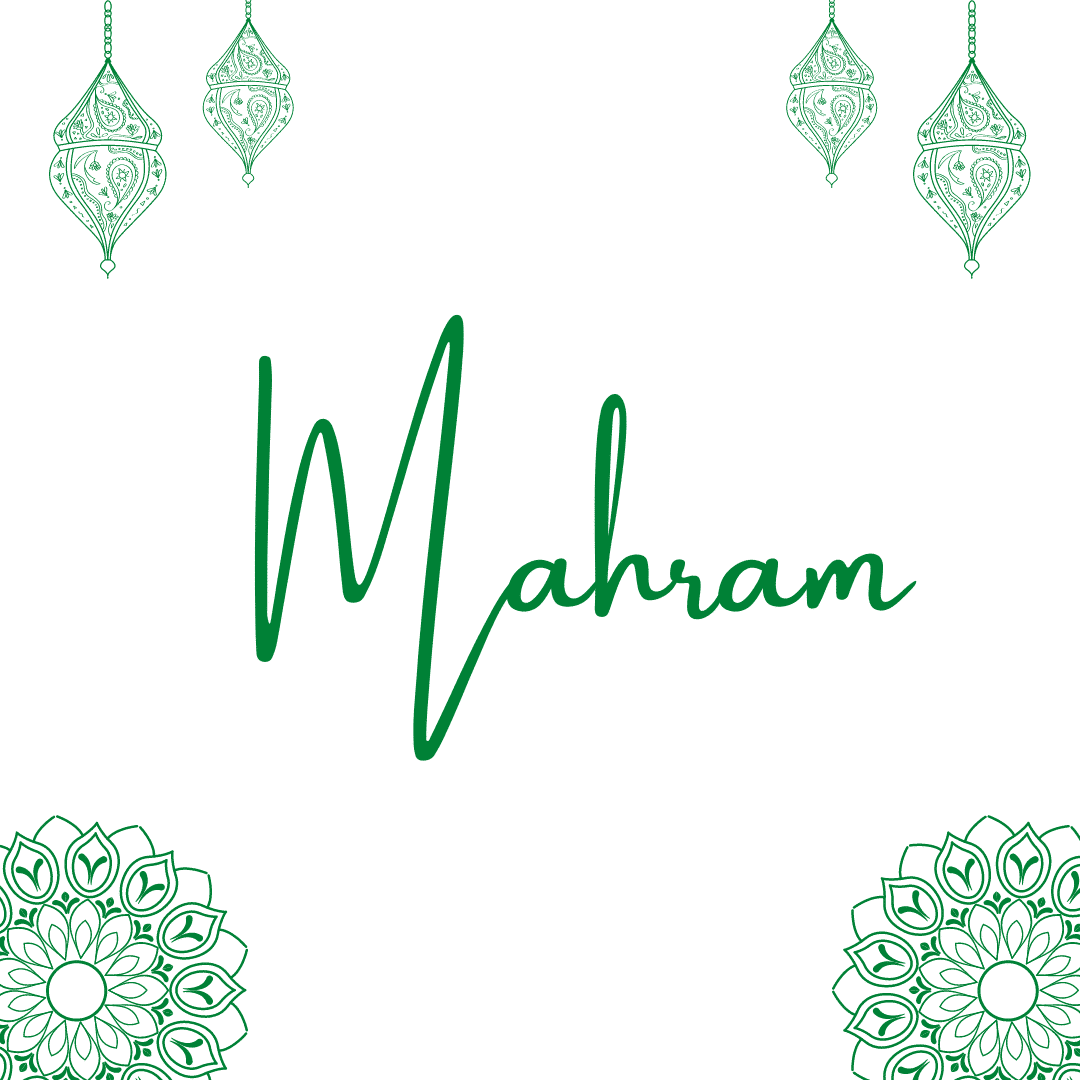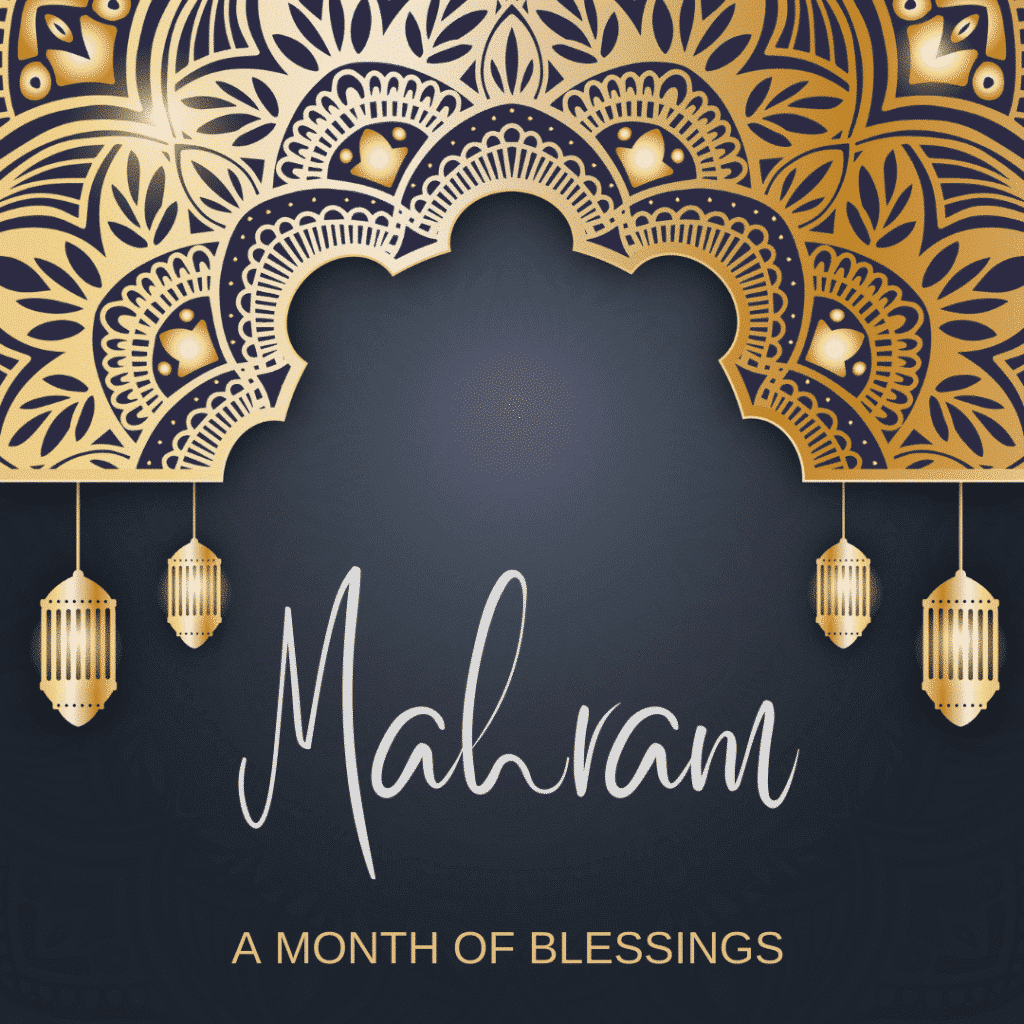Muharram: also known as Muharram-ul-Haram, is the first month of the Hijri calendar, and thus the Islamic year begins. It is the only month in which Allah’s name has been associated with it – the Prophet Muhammad (saw) referred to it as “the Sacred Month of Allah” – and is thus particularly auspicious. Let’s learn more about this Hijri month through this article.
Muharram is the first month of the Islamic calendar and is considered one of the four sacred months in Islam. It is a time of reflection and contemplation for Muslims, as well as a time to honor the sacrifices of the past.
What is Muharram?
Muharram is a month of great significance in Islam. It is the first month of the Islamic calendar and is considered one of the four sacred months in which fighting and warfare are prohibited.
During Muharram, Muslims traditionally engage in acts of devotion and remembrance, such as fasting and prayer. It is also a time when many Muslims participate in special events and ceremonies, such as processions and recitation of the Qur’an.
The significance of Muharram is largely tied to the history of Islam. It was in the month of Muharram that the Prophet Muhammad and his followers migrated from Mecca to Medina in 622 CE, a journey known as the Hijrah. This event marked the beginning of the Islamic calendar and is considered a pivotal moment in the history of Islam.
In addition to the Hijrah, Muharram is also associated with the tragic events of the Battle of Karbala, which took place in the year 680 CE. This battle pitted the forces of the Umayyad Caliphate against those of the Prophet Muhammad’s grandson, Imam Husayn. Despite being vastly outnumbered and outgunned, Imam Husayn and his followers chose to stand their ground and fight for their beliefs. They were ultimately killed, and their sacrifice is remembered and revered by many Muslims to this day.
The Muharram Rituals and Customs
The rituals and customs of Muharram vary among different Muslim communities. In some places, Muharram is marked with special ceremonies and processions, while in others it is a more somber and introspective time.
One common ritual during Muharram is the recitation of the Qur’an. Many Muslims participate in special gatherings where the Qur’an is recited and discussed, often with a focus on the themes of sacrifice and devotion.
Another common ritual during Muharram is the observance of a fast. Many Muslims choose to fast on the 10th day of Muharram, known as Ashura, in memory of the sacrifices of Imam Husayn and his followers. This fast is not required by Islamic law, but it is seen as a way to show devotion and solidarity with those who have suffered for their beliefs.
In some parts of the Muslim world, Muharram is marked with processions and parades. These may include music, chanting, and the use of special flags and symbols. In some cases, these processions can become quite emotional, with participants expressing their grief and sorrow over the events of the Battle of Karbala.
In other parts of the Muslim world, Muharram is a more somber and introspective time. Some Muslims choose to spend the month in quiet contemplation and reflection, focusing on their own spiritual growth and development.
The Meaning of Muharram
Muharram is a time for Muslims to remember and honor the sacrifices of the past. It is a time to reflect on the values of devotion, selflessness, and perseverance, and to seek guidance and inspiration from those who have gone before us.
For many Muslims, Muharram is a time to reaffirm their commitment to their faith and to strive to live their lives in accordance with the teachings of Islam. It is a time to focus on one’s own spiritual growth and to seek the guidance and assistance of God in all aspects of life.
Muharram
Muharram is one of the four sacred months, and its name denotes its exceptional significance.
The word ‘Muharram’ literally means ‘forbidden,’ implying that it is so holy that some behaviors are prohibited during it to preserve its holiness.
The month of Muharram and Allah’s House (Al-Masjid Al-Haram) is a hallowed location where every conduct, good or ill, weighs heavily on the scales.
Muharram is the first month of the Islamic calendar, to put it simply.
On the other hand, Muharram has a considerably more significant meaning in the minds of many Muslims throughout the world as both the beginning of something new and a chance to honor those who came before us and prepared the path for us.
The year was split into seasons by Allah (S.W.T.).
Spiritually, sure these seasons are more sacred than others.
For example, the nights of Ramadan and the days of Dhul Hijjah are proclaimed to be superior to all other days and nights of the year.
What is the month of Muharram according to the Qur’an?

Muharram is one of the four sacred months, according to the Qur’an.
It multiplies the reward for our reasonable efforts and makes any transgression more serious.
According to scholars, one advantage of having sacred months throughout the year is that we are inspired to worship Allah (S.W.T.) even more at these times.
“Verily, the number of months with Allah is twelve months [in a year], so was it ordained by Allah on the Day when He created the heavens and the earth; of them four are Sacred [i.e. the 1st, the 7th, the 11th and the 12th months].” – Surah At-Tawbah [9:36]
Imaan (faith) fluctuates like a yoyo, and Allah (S.W.T.) knows this better.
Sometimes, we need a little nudge to encourage us to do better and be better – and there’s no better incentive than knowing that even the tiniest of acts will be quadrupled in reward during these months.
Why do we fast throughout the month of Muharram?
Muharram is a month when Muslims fast for up to two days.
The 10th, the Day of Ashura, usually is one of these days, whereas the 9th is usually the other.
The Day of Ashura, which falls on the tenth day of Muharram, commemorates Allah’s (S.W.T.) deliverance of Musa (as) and the Children of Israel from Pharaoh, the greatest tyrant who ever walked the earth.
Prophet Musa (as) used to fast on this day as a gesture of thanks.
The Prophet Muhammad (S.W.T.) advised Muslims to fast in honor of his freedom and devotion.
The Messenger (S.W.T) also stated that he wanted to fast on the ninth of Ashura, but he died before he could do so.
Many Muslims also fast on this day to remember Imam Hussain (R.A.), the Prophet’s grandson, his companions, and other members of the Holy Prophet’s (ra) family. They were martyred at the Battle of Karbala.
Fasting on Ashura Day is a once-in-a-lifetime opportunity for spiritual salvation.
Anyone who fasts on this day will be blessed by Allah (S.W.T.) by having his minor sins from the previous year forgiven.
For the price of 365 days, you get one day.
Allah (S.W.T.) is very gracious!
What are Muharram’s advantages?

Although many of us recognize the significance of Ramadan, we often overlook the hallowed months.
However, they provide us with many chances to seek Allah’s compassion and favor that cannot be found at any other season of the year.
They have been chosen by Allah Himself as the most beneficial periods for drawing closer to Him.
Our actions have more weight during Muharram, just as they do in the Kaaba and its environs.
As a result, there is a chance to earn more rewards every day, but there is also the risk of accumulating more sins due to our poor conduct.
This means that we should be especially cautious in how we act in our relationships, at work, in worship, in time management, and even in how we take care of our health.
Every activity may become a chance for a reward if done with the proper mindset!
We’ve compiled a list of simple methods to take advantage of Muharram’s benefits:
This means that we should be especially cautious in how we act in our relationships, at work, in worship, in time management, and even in how we take care of our health.
Every activity may become a chance for a reward if done with the proper mindset!
We’ve compiled a list of simple methods to take advantage of Muharram’s benefits:
Say salaam a few more times!
This is the Prophet’s (saw) and the people of Paradise’s welcome, and such a modest deed can bring endless blessings and forgiveness.
Everyone should smile at you (even on Monday mornings)
During Muharram, this small act will weigh heavily on the scales.
Give Sadaqah regularly
Muharram marks the start of the Islamic New Year, making it the ideal opportunity to make commitments and create healthy habits that will benefit you all year.
Enhance your health
Eat healthier, exercise more, and get into a regular sleeping habit to improve your health.
Yes, taking care of your health is a rewardable activity; your body is a gift from Allah!
Making a few lifestyle modifications might provide you with a plethora of benefits.
Make an effort to forgive
Because sins are more prevalent during Muharram, you should seek forgiveness throughout this month or even beg Allah to forgive you by lighting the Dome of the Rock, similar to worshipping in the beautiful Masjid al-Aqsa!
Conclusion
For a variety of religious and historical reasons, Muharram is one of the most critical periods of the year:
It is a holy month known as the Month of Allah (S.W.T.) because of its importance among the months of the year.
It commemorates the Muslims’ hijrah (migration) to Medina and the start of the Islamic calendar year.
It includes the day of ‘Ashura,’ on which Muslims are encouraged to fast in exchange for an enormous reward.
This month, the Battle of Karbala took place, and Hussain (the Prophet’s grandson) was slain.
Learn more about this month by looking at this topic.
Read More: The ultimate guide to understanding when a woman can take off her Hijab?



